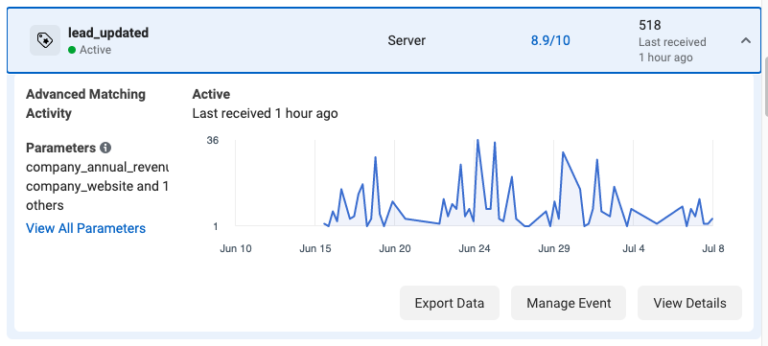On left, right, and center, you find iOS’14 privacy updates, impact on advertisers, and all kinds of thumbnails and ads. Are you already annoyed with sympathy memes on digital marketers? And so, we understand the magnitude of the commotion that the “new update” has created for digital marketers.
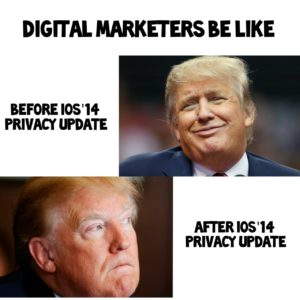
If you’re bombarded with way too many ads and blogs on Facebook API Conversions and still not clear with how about to go – stick around with us for another couple of minutes for a short and quick API Conversion tour:
- What is Facebook Conversion API?
- The impact of iOS’14 privacy update on BigCommerce stores
- Why is Facebook Conversion API gaining importance now?
- How to set up Facebook conversion API for BigCommerce stores without relying on developers help
- Benefits of Facebook Conversion API
What is Facebook Conversion API?
Facebook Conversion API (FB CAPI) primarily evolved from server-side API lets advertisers send web events from their servers to the Facebook server. Facebook Conversion API data flows into Facebook and is treated just like pixel events allowing advertisers to measure, track and optimize their conversions.
The impact of iOS’14 on BigCommerce
Apple users are given the freedom of choice for users to opt-in for apps tracking which will impact the BigCommerce stores and also other e-commerce small-medium businesses that rely on Facebook ads to run their business.
As a marketer, if you’re running Facebook ads, it is important to track your data to measure the performance of ad campaigns.
Only if you can measure the performance of ad campaigns, you can optimize & improve conversions and increase revenue further.
With browsers blocking third-party cookie tracking and with the latest announcement on the iOS’14 update, Apple has given the freedom of choice for users to opt-in/ opt-out from apps tracking. Many advertisers anticipate that a huge number of users will opt out of app tracking. In absence of the app-tracking information, it’s going to be hard for advertisers to track the data and measure the performance of their ad campaigns.

Why is Facebook Conversion API gaining importance now?
As of 2020, Facebook is the largest social media platform globally with 2.6 billion active users worldwide and India is the top first among the world countries and followed by the United States. Similarly, there are around 1.65 billion active iOS users as per Tim Cook’s recent update, with the US ranking on top followed by China and Europe having the greater market for Apple.
BigCommerce is one of the popular e-commerce platforms that has around 90,000 stores, it’s a no-brainer that BigCommerce store owners run ads on Facebook and their customers would probably be using Apple iPhones as well and they are going to be affected by these updates well.
For all of these reasons, one-stop solution is to implement Facebook Conversion API:
Facebook Conversion API for your BigCommerce store:
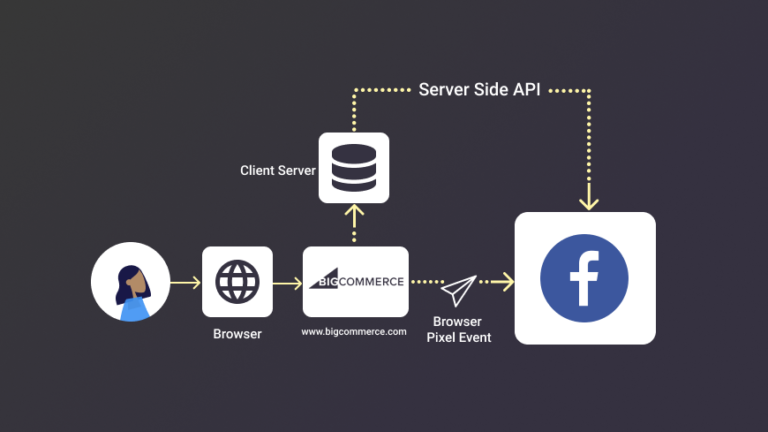
Steps to integrate your BigCommerce store (website) with Facebook through Facebook Conversion API
The browsers and ad blockers are blocking requests made by Facebook. And Facebook has started using aggregated event measurement to prioritize events fired by pixel from the website.
To overcome these challenges, the recommended way is to start sending the data through the server.
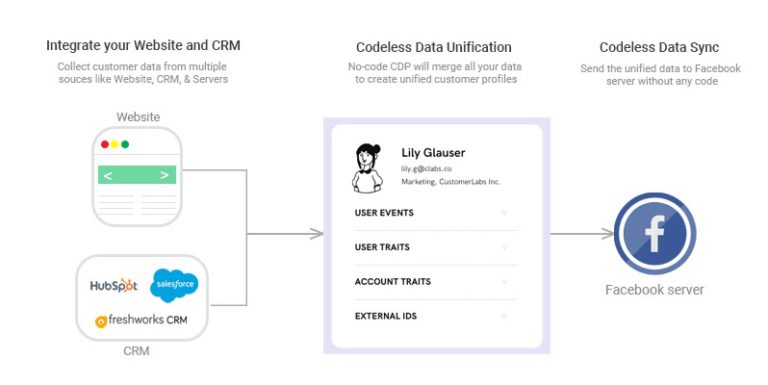
Creating events on the BigCommerce store using a no-code event tracker:
We use our no-code event tracker to track the events on the BigCommerce store and send the events data through server-side API / Facebook Conversion API.
It simply takes few clicks to choose elements to track and capture data,
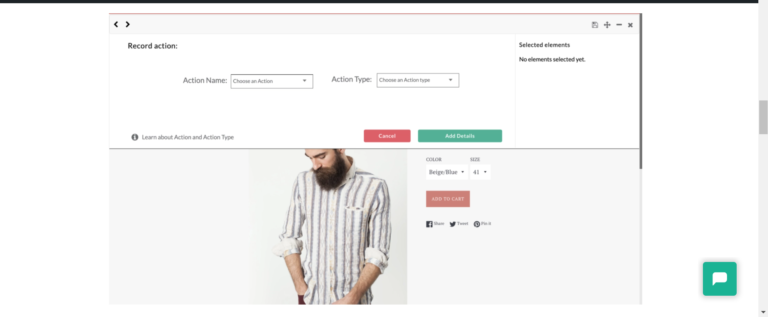
As soon as the event is configured, the event data will start firing to the Facebook pixel. However, if you’d like to send the data through server-side or Facebook Conversion API, you just have to toggle between the on and off switches.
In just a few steps you can enable Facebook on the destination part,
→ Copy-paste your Facebook pixel id
→ Authenticate Facebook and switch on the server-side send data.
Mapping the Facebook fields to improve Event Quality:
Map the Facebook fields with the data collected. This data mapping helps Facebook match the audience data sent from the server and improves your event quality score.
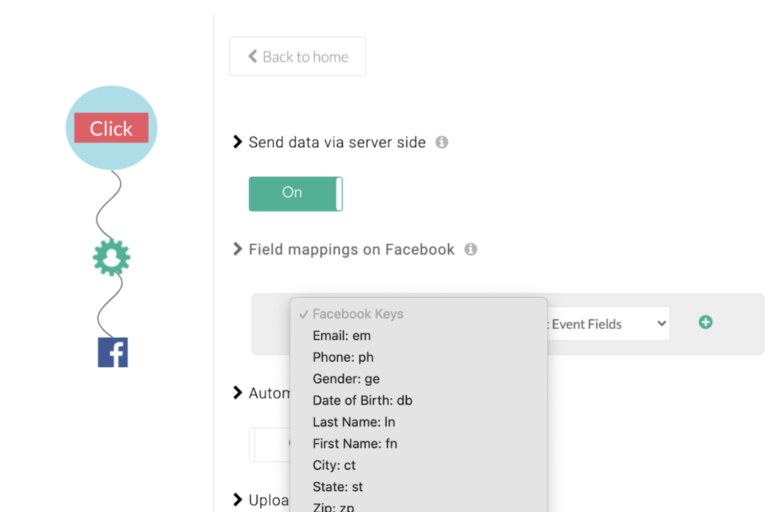
Switching off client-side and on server-side
Finally, you should switch on the event you’d like to send from the server-side. Once you do that, Facebook pixel will start receiving the data via Conversion API.
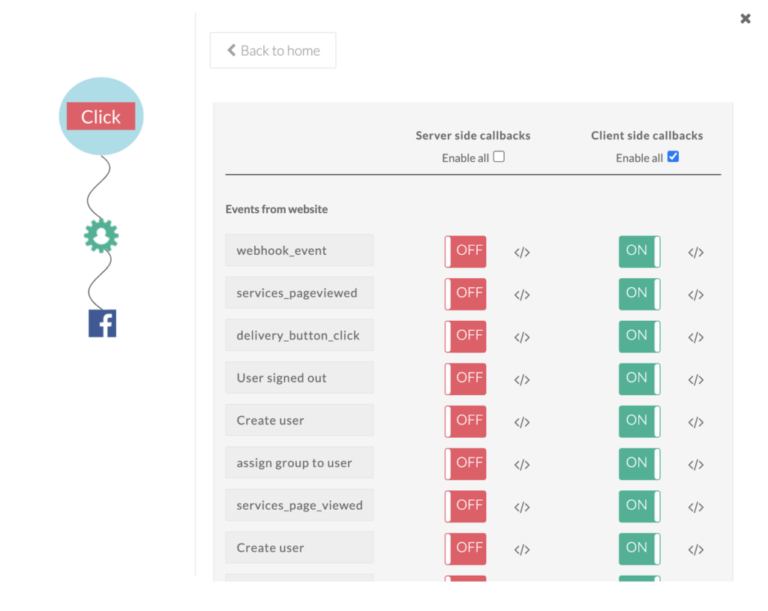
Customizing Facebook event data to show personalised Ads
If you want to customize event data for eg: variables and content IDs, you can open the code window and write a call back function that allows you to customize the event the way you want.
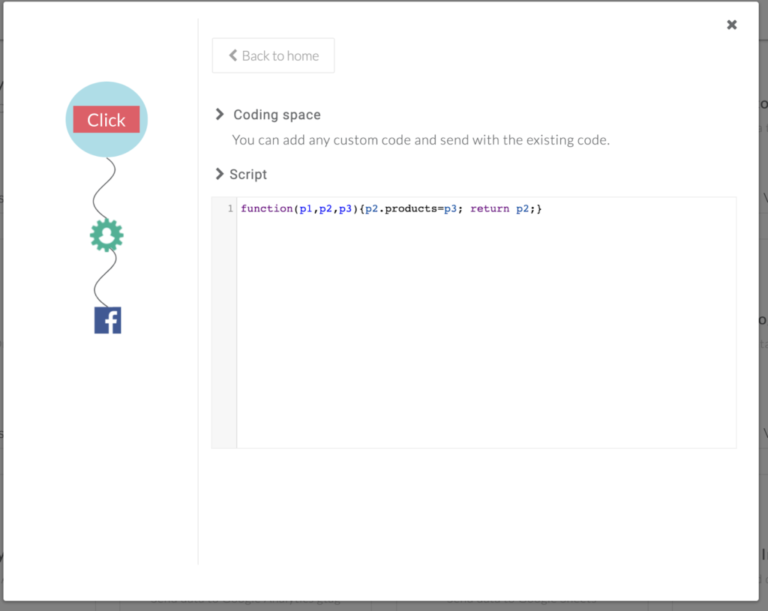
Important concepts to improve match rate:
External ID:
CustomerLabs CDP assigns external IDs to all the visitors and collects IP address, FBC, FBP, user agent, parameters.
And when we send data to Facebook, we automatically add these IDs to the visitors’ data and this has improved our match rate for up to 4x (Our match rates are quite high of about 70 -95% when compared to the normal match rates of 15% – 3 0%).
The above process is automated, there’s no need to set up anything.
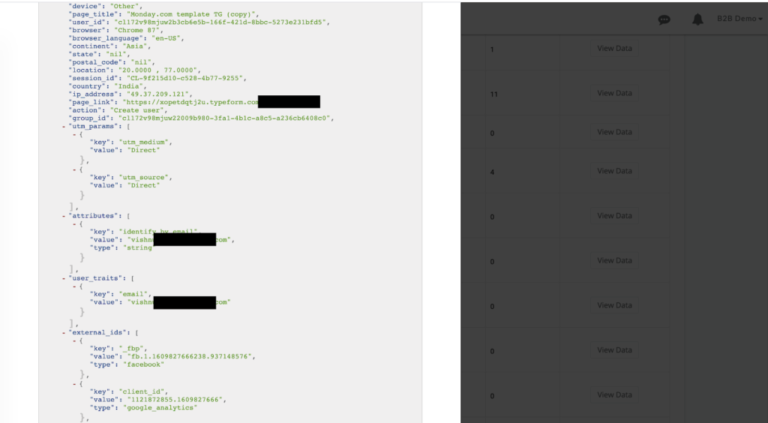
Integrate your CRM With Facebook through FB conversion API
In fact, Facebook conversion API lets us, marketers focus on full-funnel metrics unlike earlier. We can now push the data from your server and CRM to map the entire funnel.
It is important to note while sending the data from your CRM the events should include as many parameters as possible to match the event to a particular Facebook account.
The below image is an example of how an event can be mapped to a particular user. In this instance, we are bringing the data from Salesforce, and mapping the user identity as email and other data received are identified as event attributes.
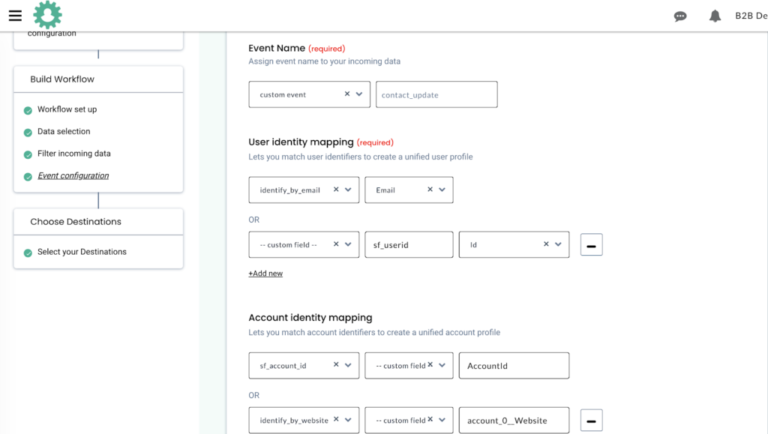
Mapping event attributes
Once the event is named, you’ll start receiving data from Salesforce which can be mapped as event attributes.
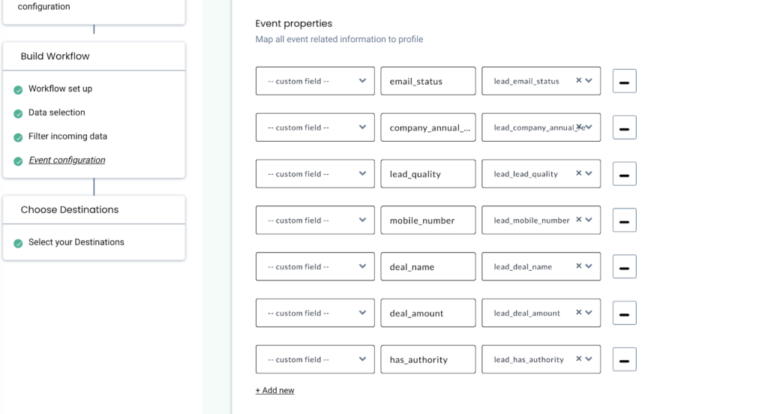
CustomerLabs CDP will build an event based on the input data and transform the event in a way that Facebook Conversion API accepts.
As you can see below, CustomerLabs brings the data from Chargebee, CRM, and other marketing systems and syncs the data with Facebook.
In the dashboard given, you have the option to toggle between the on and off switches to decide which event to be sent and what’s to be excluded.
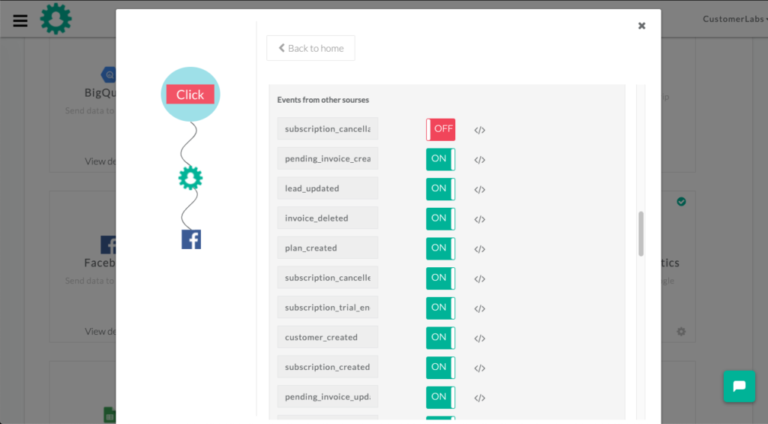
You can access the event data on Facebook with all the event, user & account attributes under parameters.
Facebook Event Data
Facebook receives the data in realtime, with all the attributes/parameters which can be used to create custom audience to engage them with personalized content.
